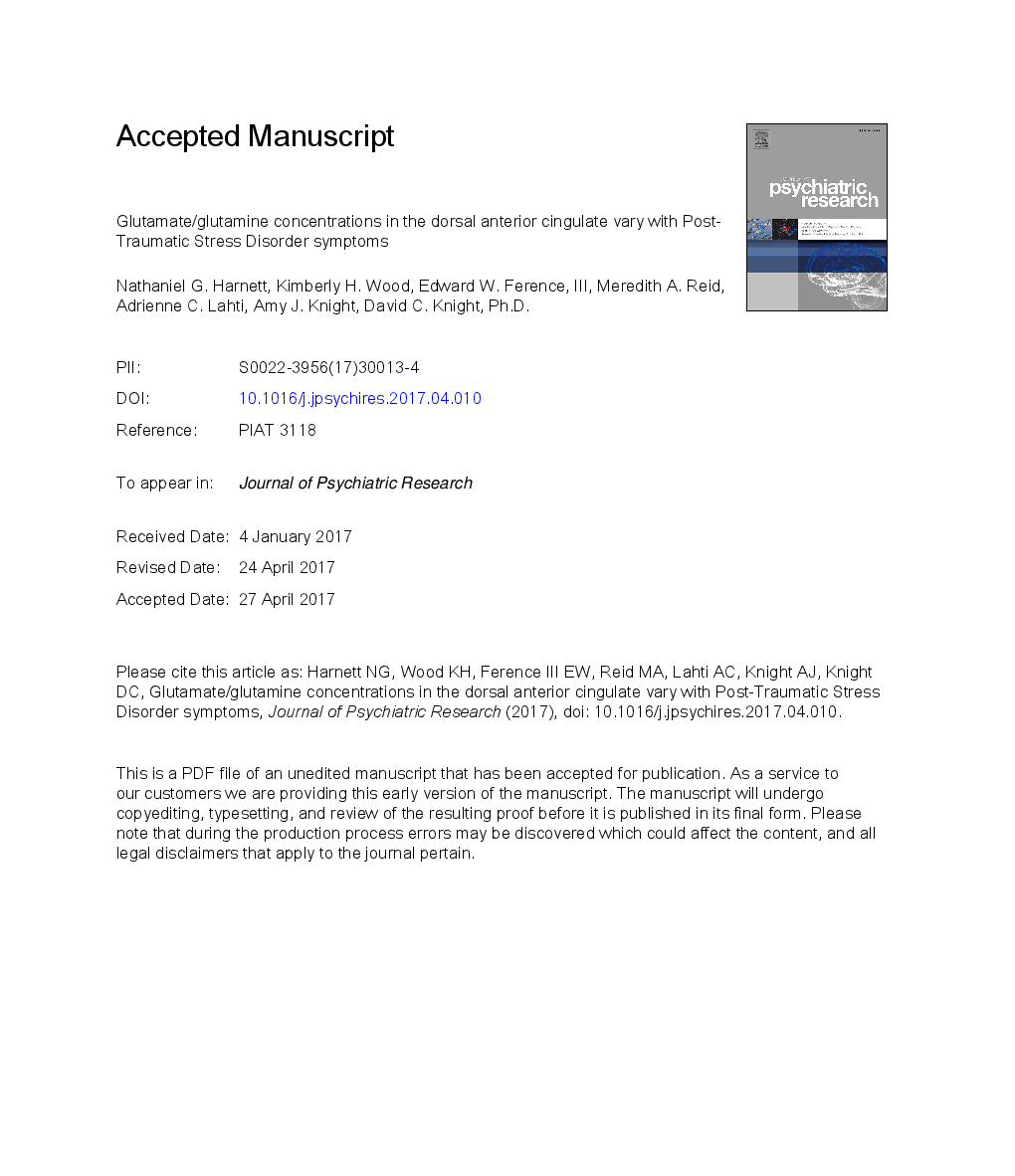ترجمه فارسی عنوان مقاله
غلظت گلوتامات / گلوتامین در سینگوال قدامی پشتی متفاوت است با علائم اختلال استرس پس از ضربه
عنوان انگلیسی
Glutamate/glutamine concentrations in the dorsal anterior cingulate vary with Post-Traumatic Stress Disorder symptoms
| کد مقاله | سال انتشار | تعداد صفحات مقاله انگلیسی |
|---|---|---|
| 134926 | 2017 | 36 صفحه PDF |
منبع

Publisher : Elsevier - Science Direct (الزویر - ساینس دایرکت)
Journal : Journal of Psychiatric Research, Volume 91, August 2017, Pages 169-176

